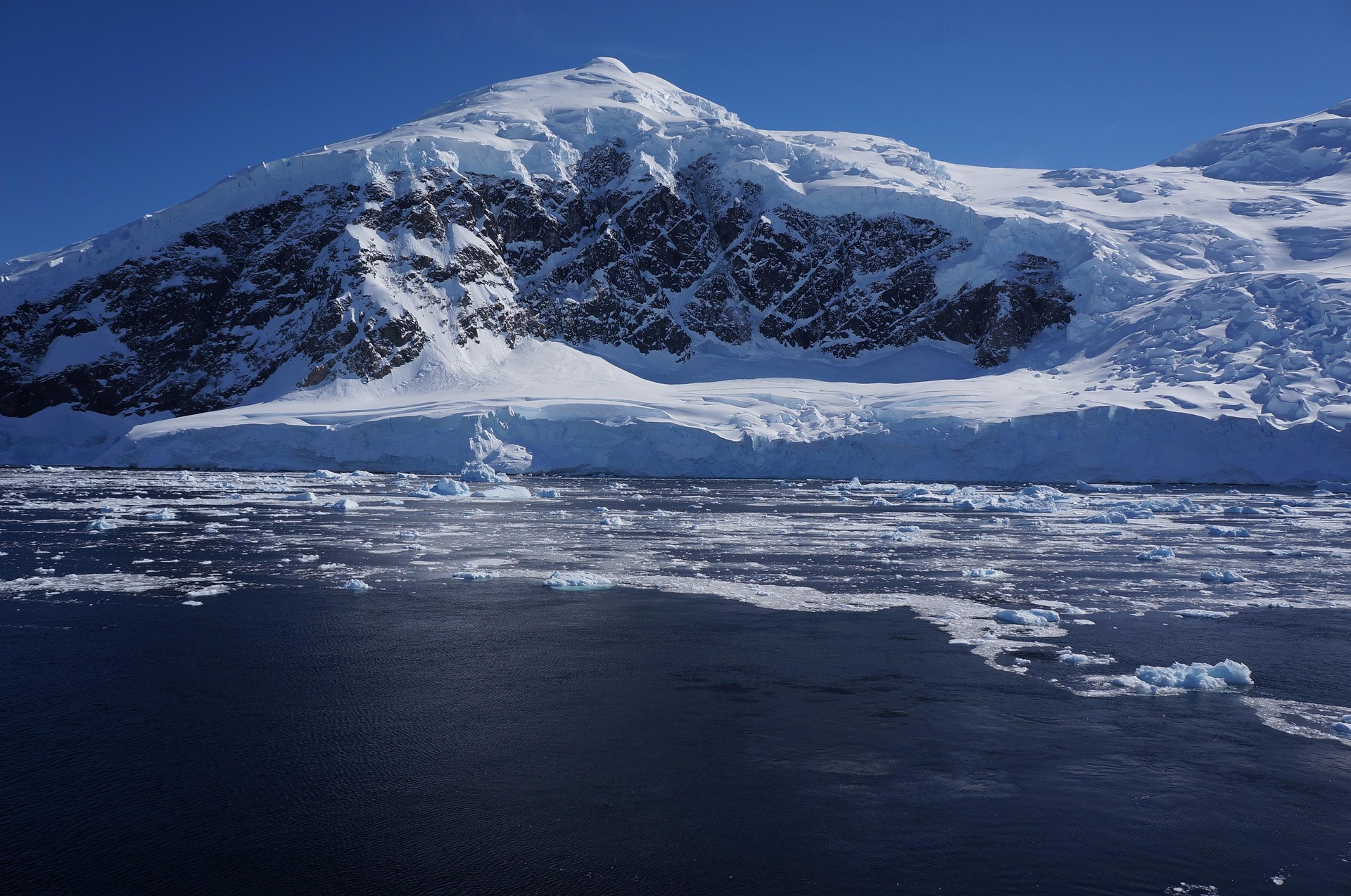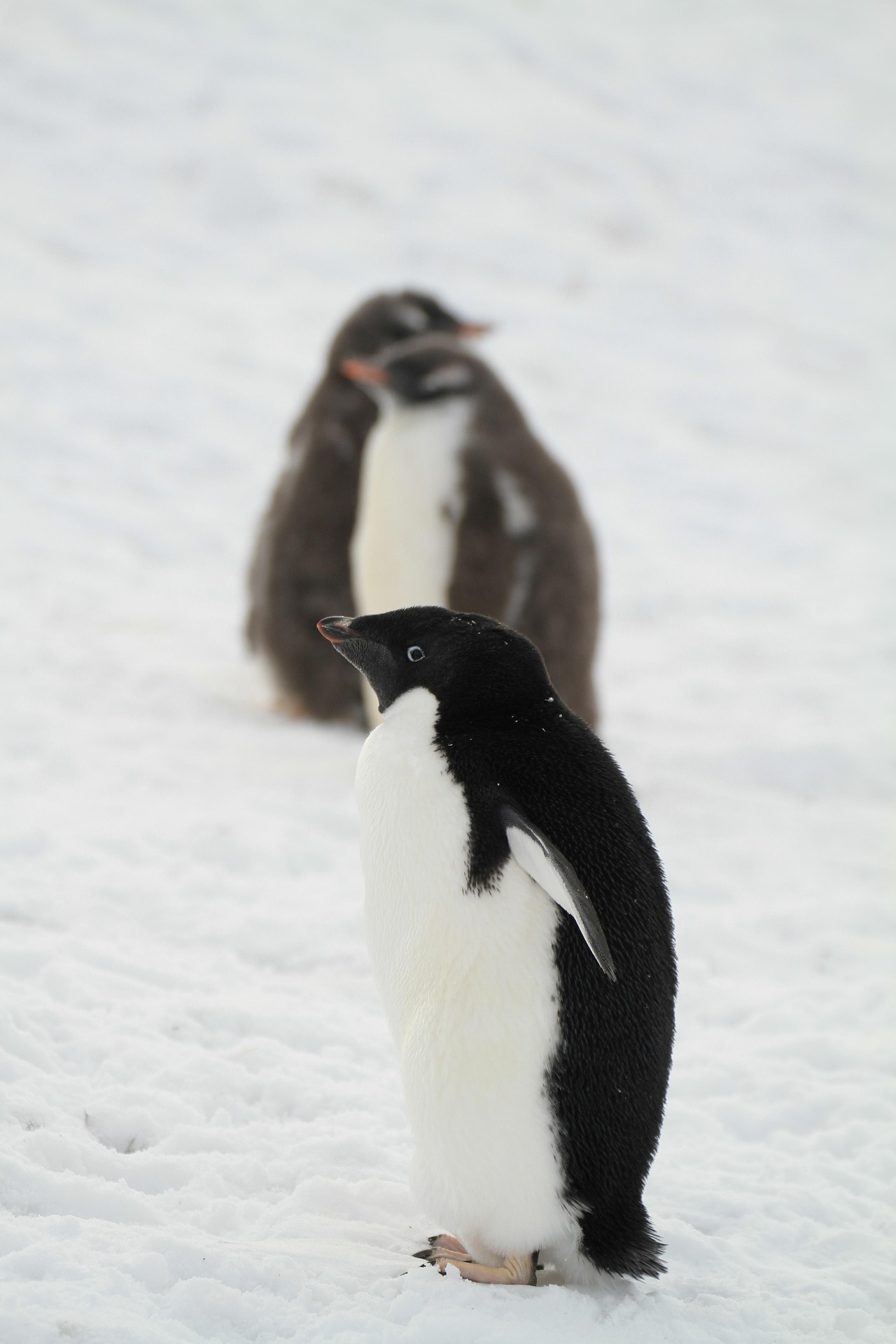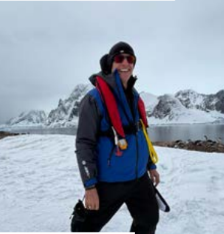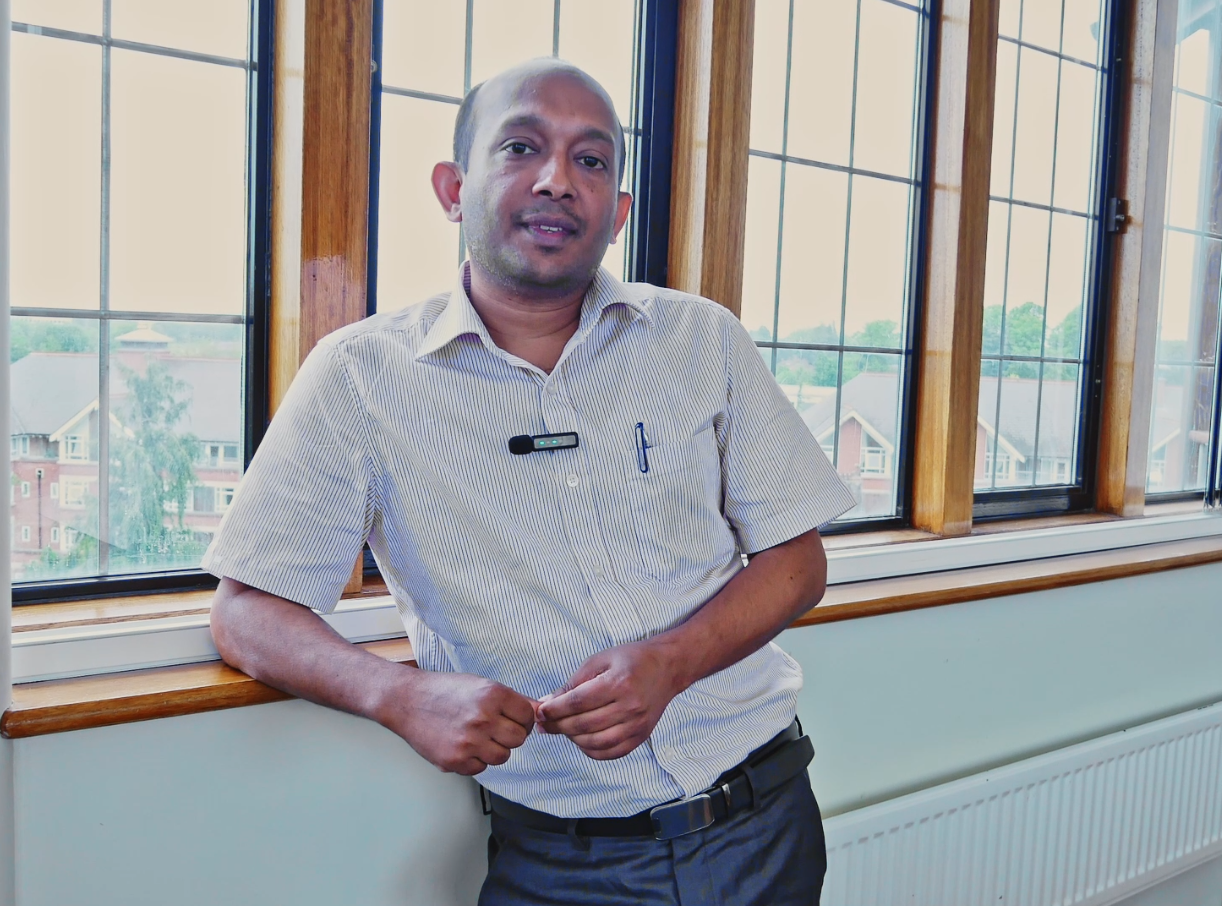St Edmund’s is a truly global community, and for 25 days we were able to say that there was an Eddie on every continent on earth – thanks in part to alumnus Patrick McPhilamy (m. 1983) who told us about his expedition to the polar south.

“As I set foot on the icy shores of Antarctica, I was almost immediately struck by the stunning landscape, with its tall rocky hills and mountains, covered in ice and snow, juxtaposed along the shoreline, creating breath-taking visual imagery against the backdrop of the vast expanse of the continent.”

“As we sailed through the Drake Passage to Antarctica, one of the expedition crew members introduced us to the concept of citizen science, during one of the lectures and briefings while on board the ship. Citizen science involves the collection of data relating to the natural world by members of the public, typically as part of a collaborative effort with professional scientist. The main features of this concept are that anyone can participate; participants use the same protocol to ensure the collection of high-quality data to be combined with other data; data obtained by citizen scientists may be useful to professional scientists; and that collaboration can give rise to data not otherwise readily available.”
“The Antarctica Treaty System has established Antarctica as an area dedicated to peace and science. It is a place where there has never been a war, the environment is completely protected, and scientific research is paramount. Science is one of the reasons, if not the main reason, people travel to Antarctica. One of the principal areas of scientific research there is the study of climate change and how it is affecting not only the Antarctic region, but also the rest of the world.”
“Unfortunately, Antarctica is not immune to climate change. In 2016, Antarctic CO2 reached 400 ppm for the first time in 4 million years, according to the National Oceanic and Atmospheric Administration (NOAA). Global warming has caused ice shelf collapse, particularly the West Antarctic Ice Sheet, resulting in rising sea levels. This part of the ice sheet holds enough water to raise sea levels by about 5 meters.”
“The inextricable relationship between the health and stability of Antarctica and the rest of our planet was the biggest eye-opening moment of my trip.”
“For several years, I have felt a sense of responsibility to advocate or campaign for sustainable practices. Since completing course work and training in 2016 and thereafter, I have campaigned and advocated for sustainability, writing and speaking to leaders in politics and industry, among others, seeking to make a positive impact. I have also published and spoken on climate change internationally, including the use of alternative dispute resolution mechanisms, such as arbitration and mediation, to address or prevent climate related issues and disputes. I intend to continue speaking and writing for change. The technology is available for a green industrial revolution. There has long been a grass roots movement to advocate for an equitable transition from fossil fuels to green energy. Considering all the progress previously achieved, I think it would be a huge, missed opportunity if we do not build on this momentum to reverse the trajectory of global climate change.”




